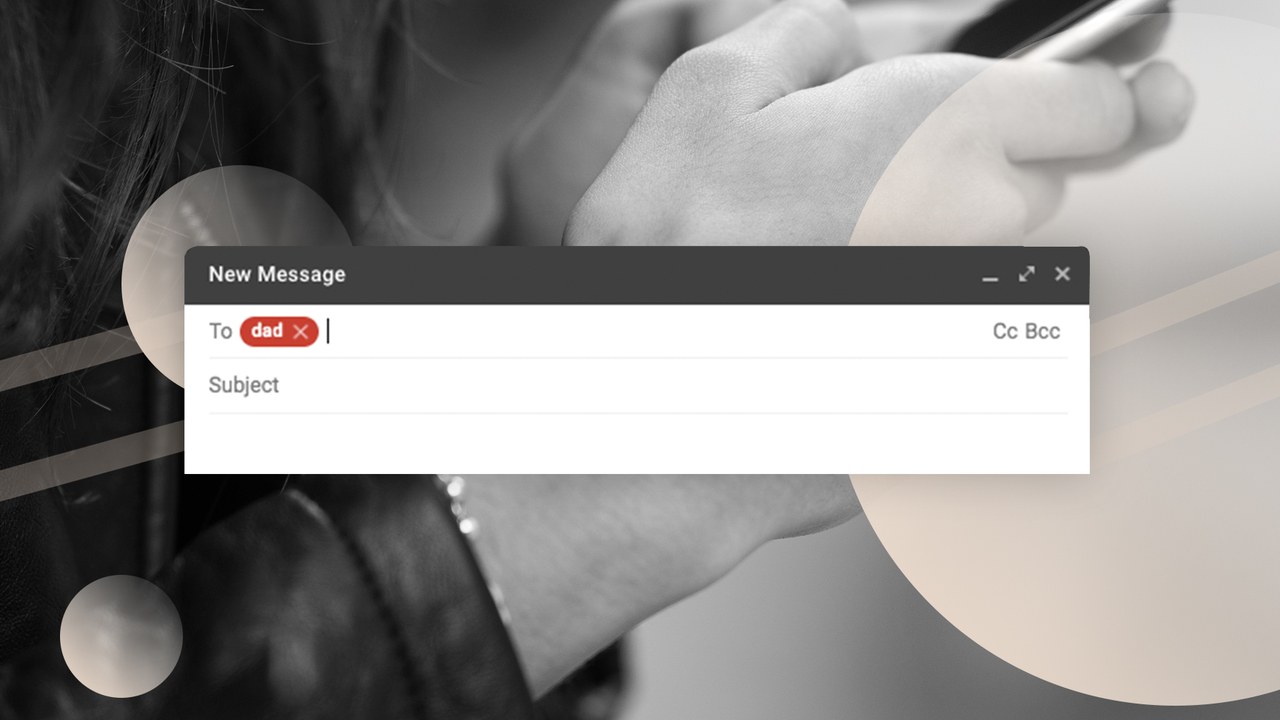After My Dad Died, I Started Sending Him Emails. Months Later, Someone Wrote Back

As expected, I only found about 10 emails between us in as many years of Gmail use. The revelation was not in anything I read but in the mere typing of his name—an icy wave of relief splashing me in the face. How good it felt to write his name for no reason, in a place that only I could see, and not on some piece of paperwork related to his death or in response to some well-wisher’s post on Facebook. It was like charging a magical sigil. I’d never been one of those writers who attached fetishistic significance to the physical act of writing (or to books themselves, or paper). But I finally understood how those writers felt. Writing to my father, I realized, was a charmed act. It didn’t summon him, but it raised the friendly shadow of him in the room; that was something.
I began writing him emails. I didn’t send them at first. Typing his email address into the “recipient” bar was enough to conjure up his listening presence. For months I transcribed the hostile anguish in my head into emails to my father, which I would then seal off with the addition of his email address and save in my drafts folder. It was the high school diary, unfiltered. He would never find out how it ended now; it felt good to “tell” him.
The first time I pressed “send,” it was by accident, and I was horrified. I was worried not that someone would receive and read the email, but that the recipient address would bounce back a message that the account had been deactivated.
I stared at my inbox for a minute, waiting for the inevitable. It never happened. The email address was still active.
So I continued the ritual, except now I sent those long-winded emails out. I wrote to my father anytime I needed him. In my letters, I tried to talk myself around to whatever he would have said to me, hoping I could reverse-engineer the advice he might have given me. Then I pressed “send,” which never stopped being thrilling—I’d sidestepped the finality of death and found a plane where my father could thrive unchallenged. I put disclaimers at the beginning of every email: Hey, if you can somehow read this, please ignore it; hey, I don’t think anyone’s checking this email, but if you are then please just delete without reading; I’m lonely, I’m grieving, I miss my father, nothing to see here. But nobody ever responded.
One day, a year and a half later, someone did respond—not from my father’s email address, thank God, or I likely would have passed out at my desk. Still, it was frightening to see another email address from the same Workplace suite, with the same subject line. I don’t know what I was frightened of, exactly. Only that the stakes felt terribly high. I’d forgotten the cardinal rule of doing anything online, even sending emails to a dead person’s inbox—everything that happens online can be witnessed by an audience.
The response I received is the reason you’re reading this, because I posted it on Twitter and it went viral. “I’m sure you remember me,” my father’s former coworker wrote. “I want you to know that I never read these emails because I can tell they are very personal. But I do see them coming in and I can see that you must still miss your dad terribly.” There was more; I’m self-conscious about typing it all out, because of how generous it was for this person to not only share memories of my father with me, but to interpret them, color them with our shared understanding of what my father and I had been together. Like, for example: “Watching the two of you together wisecracking…it was like watching a Mel Brooks movie.”
Right after he died, all I ever wanted to do was talk about how great my dad was. People never quite related to that urge properly, leaving me feeling frustrated and thwarted at every turn. I was so dialed into my grief that it was unimaginable to me how people could talk to me about anything else. I wanted other people to tell me funny stories that made my father sound as cool and charming as I’d always believed him to be, without my having to ask for it. That was the thing that my dad’s old coworker did for me. I shot the signals of my mourning into space for months, fully expecting them to die unreceived. And when I least expected it, someone sent signals back that said, “You are not the last living witness to the relationship you had with your father.”





